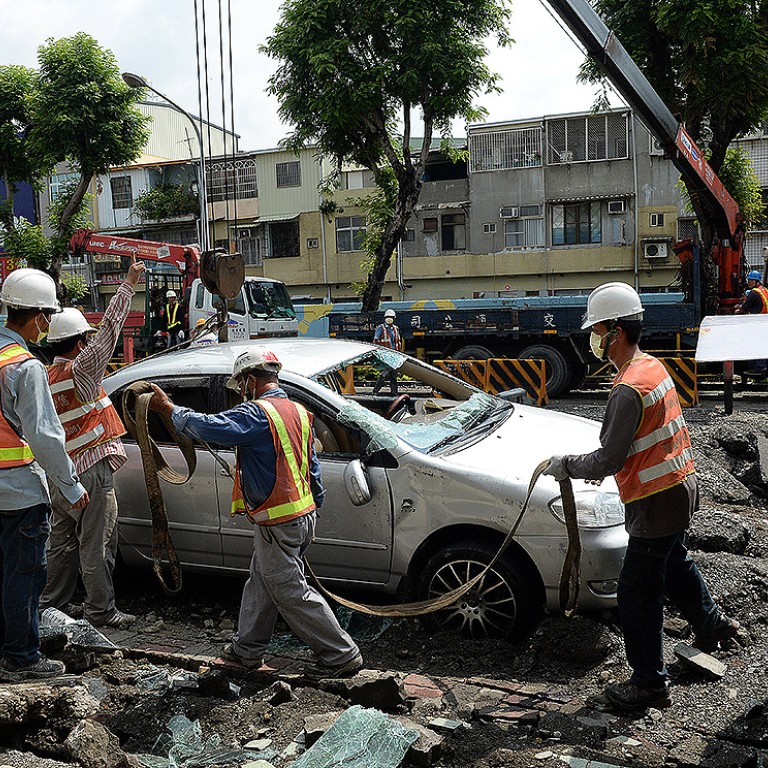
Roads evacuated amid fears of further gas blasts in Kaohsiung
Rescue workers and residents at a blast-hit site in Kaohsiung were evacuated last night after the detection of "suspicious gas" raised fears of further explosions.
Rescue workers and residents at a blast-hit site in Kaohsiung were evacuated last night after the detection of "suspicious gas" raised fears of further explosions.
The evacuation took place after a gas company revealed to Kaohsiung Mayor Chen Chu that about 260 tonnes of gas remained in pipelines under Kaisyuen Third Road - one of the areas hit by gas explosions last week that killed at least 28 people.
A fireman said work would not resume until the source of the gas was known.
Video: Rescue continues after deadly gas explosions in Taiwan's Kaohsiung
The Ministry of Economic Affairs said all gas would be disposed of as early as this afternoon, and it would meet experts and all 40 gas companies in the city to establish the location of all underground pipelines.
Thirty tonnes of propylene were disposed of by China Petrochemical Development Corporation, the head of Kaohsiung's Environmental Protection Bureau, Chen Chin-der, said.
At least 28 people died and more than 300 were injured in a series of underground explosions shortly before midnight on Thursday. Investigators believe the pipeline belonged to LCY Chemical, and that it had registered a drop in pressure. The city government said a patch used to mend the pipeline might be to blame.
Almost 33,000 households have been affected. Residents at a temporary shelter at Chung-cheng Industrial High School were told to move out in the afternoon. Social Affairs Bureau deputy chief Yeh Yu-ju said they could go home or be resettled at hotels or flats. The government would cover the expenses.
The Ministry of Economic Affairs said power for the district and water supply in some areas could resume in five days.
Li Chun-guei, a neighbourhood ward chief whose husband died in the blast, accused the government of reacting too slowly after residents first complained of smelling gas.
Li's husband, Chen Jin-fa, arrived at the scene hours before the explosions to help distribute water to firemen who had responded to the complaints.
"He called some government departments telling them to deal with the smell of gas," Li said. "But they passed the problem to each other. If they had switched off the gas earlier, it would not have happened."
